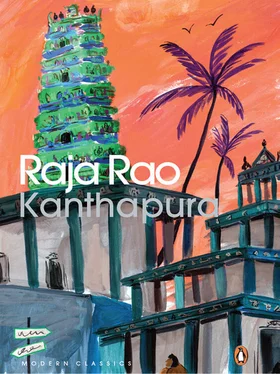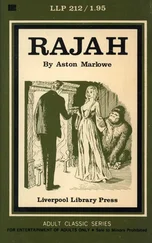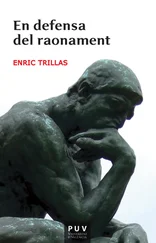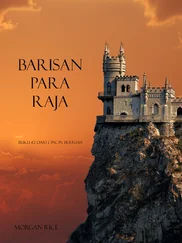He skirted the temple flower garden and, hurrying round Boranna’s toddy booth and crossing the highway, he rushed up the village road to the panchayat mound, turned to the left, followed Bhatta’s Devil’s field, where Pariah Tippa was weeding, jumped across Seethamma’s stile and went straight through the backyard. Maybe Ratna would be at the well, he thought. But Ratna was not there and the rope hung over the pulley, solemn and covered with flies; so he ran over the temple promontory and straight across the Brahmin street corner to Rangamma’s house, but, seeing that Rangamma had not yet returned from the river, he threw the bundles into the Congress room and walked back to see his mother, who sat by the threshold, her bundle of dirty clothes beside her, herself unwashed and morose.
‘O Mother, you are here to give warm coffee to your son,’ cried Moorthy, as he went over the steps and moved forward to fall at her feet. But she pushed him away and told him he should never show himself again, not until he had sought prayaschitta from the Swami himself.
‘Oh! to have a son excommunicated! Oh! to have gone to Benares and Rameshwaram and to Gaya and to Gokurna, and to have a son excommunicated! I wish I had closed my eyes with your father instead of living to see you polluted. Polluted! Go away, you Pariah!’
‘But what is all this about, Mother?’
‘What? Don’t talk like an innocent. Go and stand on the steps like a Pariah. Let not your shadow fall on me — enough of it.’
‘But why, Mother?’
‘Why? Go and ask the squirrel on the fence! I don’t know. Go away, and don’t you ever show your face to me again till you have been purified by the Swami.’ And she rose up and rushed down the steps, running through the Brahmin street and the Potters’ street, and when she was by the Aloe lane she grew so violent with Pariah Bedayya, because he would not stand aside to let her pass by, that she spat on him and shouted at him and said it was all her son’s fault, that he had brought shame on her family and on the community and on the village, and she decided there and then that she would go to Benares and die there a holy death lest the evil follow her. But when she came to the river, they were all so occupied with their washing that she too began to bang her clothes on the stones, and in banging she grew calmer. And when she had taken her bath and came back home telling her beads, she felt the sands and the grass and the shadows so familiar that she went straight to the kitchen and began to cook as usual. But where was Moorthy? He would come. He was only at Rangamma’s house. Oh, he was no wicked child to leave the village without telling her. Oh, the fool that she was to have been so angry with him! Age brings anger. It is just a passing rage. And she sat herself down to meditate, but the gayathri muttered itself out soft and fast, and now and again when she opened her eyes and looked towards the main entrance through the kitchen door, her eyes fell on the royal sacred flame and the breathful flowers and the gods, and the walls looked angry and empty. Yes, Moorthy would come! And when the prayer was said and the rice water was on the hearth, she walked up to the veranda to see if he was on Rangamma’s veranda, but he was not. And as Seenu was passing by the door, she asked him, if he went by Rangamma’s house, to tell Moorthy that the coffee was ready—’Poor boy, he must be so hungry after a night in the cart!’—and she went in crying, ‘Rama-Rama,’ and a tear ran down her cheeks.
Then there were footsteps at the door and they were heavy and odd and they were not Moorthy’s but Bhatta’s, and Bhatta told her that Moorthy had been very angry with him for having said the Swami was going to excommunicate him, that it was not true, that the Swami had only said he would excommunicate Moorthy if he continued with this Pariah business. ‘And Moorthy says, “Let the Swami do what he likes. I will go and do more and more Pariah work. I will go and eat with them if necessary. Why not? Are they not men like us? And the Swami, who is he? A self-chosen fool. He may be learned in the Vedas and all that. But he has no heart. He has no thinking power.” And what shall I say to that, Narsamma?’
‘He says that, learned Bhattarè?’
‘Yes, that is what he just told me. I was passing by Rangamma’s house after a peep into the temple, and Rangamma says, “Moorthy is here, and he wants to see you, Bhattarè,” and I go and I see Moorthy angry and disrespectful. O these unholy days, Narsamma! I pity you. ’
‘Is there nothing that can be done now, Bhattarè?’ asks Narsamma, her voice trembling.
‘Nothing, Narsamma. If he goes on at this rate I will have to tell the Swami about it. I do not want our community polluted and the manes of our ancestors insatiate. Never, Narsamma, never. ’
‘But he is so reasonable, Bhattarè. I cannot imagine our Moorthy saying these things, Rama-Rama. ’
‘Poor Narsamma. You have never been to the city. You cannot even imagine the pollutions that go on there. It was not for nothing that Moorthy went to the university. Well, well, one has to close one’s eyes and ears, or else the food will not go down one’s throat these days. ’
Then Moorthy comes in, and Narsamma begins to weep and Bhatta grows silent, and when Moorthy has gone to wash his feet in the bathroom, Bhatta goes away, leaving Narsamma shaking with sobs. Moorthy does not go to her, says not even a kind word. Then Narsamma rises, wipes her face and goes into the kitchen, and when the food is cooked, she lays a leaf in the main hall, and does not even put a glass of water for the libations. And she goes to the veranda, where Moorthy is reading and says:
‘The leaf is laid.’
‘I’m coming.’ And Moorthy sits by the kitchen threshold and eats like a servant, in mouthfuls, slowly and without a word. And when he has eaten his meal, he goes and washes himself at the well, and Narsamma munches her food alone in the kitchen, while tears run down her cheeks. ‘Oh, this Gandhi! Would he were destroyed!’
From that day on they never spoke to each other, Narsamma and Moorthy. He sat and ate his food by the kitchen threshold and she in the kitchen, and everybody saw that Narsamma was growing thin as a bamboo and shrivelled like banana bark. But Moorthy went more and more into the Pariah quarters, and now he was seen walking side by side with them, and then one day when Beadle Timmayya’s son, Puttayya, lost his wife, he even carried the body for a while, and when everybody saw him doing this openly — for it was on the river path, mind you — they all cried, ‘Oh, he’s lost!’ And Bhatta ran down to the city that very morning and came back two days later with the word of the Swami that Moorthy was excommunicated, he, his family, and all the generations to come. ‘What! Never to go to the temple or to an obsequial dinner? Never to a marriage party, or a haircutting ceremony?. Oh!’ moaned Narsamma, and that very night, when the doors were closed and the voices had died away, she ran through the Brahmin street and the Potters’ street, and standing at the village gate, she spat once towards the east and once towards the west, once towards the south and once towards the north, and then, spitting again thrice at the Pariah huts, where the dogs began to raise a howl, she ran over the Fig-tree field bund, and she had such a shiver at the thought of all the ghosts and the spirits and the evil ones of flame, that she trembled and coughed. But there was something deep and desperate that hurried her on, and she passed by Rangamma’s sugar cane field and by the mango grove to the river, just where the whirlpool gropes and gurgles, and she looked up at the moonlit sky, and the winds of the night and the shadows of the night and the jackals of the night so pierced her breast that she shuddered and sank unconscious upon the sands, and the cold so pierced her that the next morning she was dead.
Читать дальше












